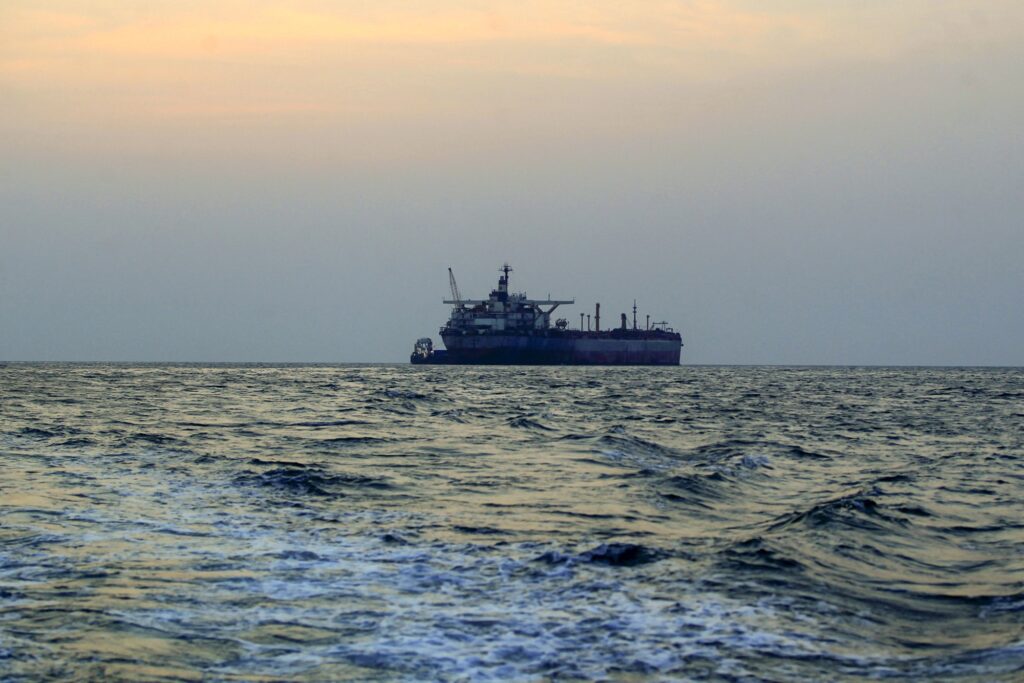A distinguished economist contends that assaults on vessels traversing a crucial trade route through the Red Sea threaten a resurgence in Inflation.
Though shipment disruptions were not as severe as during the COVID-19 pandemic, Mohamed El-Erian warned that they would raise prices and impede economic growth.
Several shipping companies have halted vessels traversing the Red Sea route in response to Houthi rebel assaults in Yemen.
United States and United Kingdom military operations against the Houthis began last week.
President of Queens’ College, Cambridge, and chief economic adviser at financial services giant Allianz, Dr. El-Erian, stated: “Inflation, mortgage rates, and growth will all increase compared to what would have occurred otherwise.
“However, when viewed in absolute terms, it is incomparable to the conditions that prevailed in 2021 and 2022.” Although this impact will not be as severe, it is still regrettable.”
Through the Bab al-Mandab Strait, a 20-mile-wide channel separating Yemen on the Arabian Peninsula from Eritrea and Djibouti on the African side, and the Red Sea, 12–15% of global trade passes.
Iran-supported Houthi rebels initiated missile and drone assaults against commercial shipping in the latter part of the previous year following the initiation of the Israel-Hamas conflict in October.
Shipping Disruptions and Economic Impact
Major shipping companies are rerouting vessels around the Cape of Good Hope in Africa, potentially delaying cargo transport from Singapore to northern Europe by 12 days.
Hapag-Lloyd, the shipping giant, estimates that vessels en route from Singapore to the eastern Mediterranean could experience an additional 18 days of delay.

The rate of price increase, or Inflation, has significantly decreased in the United Kingdom from an all-time high of 11.1% in October 2022 to a low of 3.9% in the year leading up to November.
The war between Russia and Ukraine had contributed to Inflation, causing food and energy prices to rise significantly.
According to S&P Global Market Intelligence, about 15% of imported products from Asia and the Gulf are sea-transported to Europe, the Middle East, and North Africa. This comprises crude oil exceeding 13% and refined oil containing 21.5%.
Following military intervention by the United States and the United Kingdom against the Houthis in Yemen, Brent crude, the global standard for oil prices, peaked at $80 per barrel last week. However, it has since declined to $77.75 as of Monday.
Ashley Kelty, director of oil and gas research at Panmure Gordon, stated that the events unfolding in the Middle East had “lessened the trepidation” of the markets due to weaker oil demand and oversupply.
He said one factor was the anticipation that China’s oil demand would increase once all Covid restrictions were abolished. Mr. Kelty stated, “However, China has not recovered at the anticipated rate.”
LNG (liquefied natural gas) shipments also use the Red Sea as a vital conduit.
Financial Outlook and Policy Challenges
Monday saw the emergence of reports that QatarEnergy, a significant exporter of liquefied natural gas, had ceased transiting vessels through the Bab el-Mandeb Strait. Since Friday, five boats have been detained, according to Bloomberg.
On Wednesday, the most recent inflation rate for December will be disclosed.
Like other central banks, the Bank of England has increased interest rates to curb Inflation.
The financial markets had anticipated that the government would begin to reduce borrowing costs this year, given that inflation appeared to be returning to the 2% target the Bank of England had set.
Andrew Bailey, the governor of the Bank, cautioned in December that speculation regarding rate cuts was “too early.”
According to Dr. El-Erian, mortgage costs could increase for some borrowers should Inflation fail to decelerate or even rise, and the Bank refrains from reducing interest rates.
In 2024, fixed-rate mortgages will expire for approximately 1.5 million borrowers, according to the Financial Conduct Authority, the city’s regulator.
Meanwhile, further disruptions to the worldwide supply of products may ensue on February 10, when factories in China close in observance of Chinese New Year.
Extremely concerned, Dr. El-Erian exclaimed. Significant headwinds are at our back, and we are living in a new reality in which the global economy’s supply side is considerably more precarious, indicating that inflationary tendencies are more pronounced than previously.
Costs and Challenges of Rerouting
Hapag-Lloyd, which halted its ships’ passage through the Red Sea on December 21, estimated that rerouting vessels around the Cape of Good Hope would incur additional petroleum expenses of millions of dollars.
Nils Haupt, the company’s spokesman, stated, “Of course, we require more fuel; however, to save time, we are also accelerating, which consumes additional fuel. Therefore, this represents a monthly expenditure in the double-digit millions for us.”
When asked whether the assaults by the United States and the United Kingdom would result in a return to normalcy in shipping, he responded, “Any measure that aids in eliminating terrorism and ensuring the uninterrupted passage of commercial ships is beneficial.
“We have yet to determine whether the attack we witnessed last week is beneficial.”





